Karen Mason is showing me around the basement storage facility of the Silverlake branch of Circus of Books, the legendary Los Angeles porn chain she has co-owned and operated with her husband Barry Mason for well over 30 years. “These are leaky poppers,” she says, indicating a small ziplock bag filled with defective Rush bottles, “and this is where we shrink wrap the DVDs after assembling them. Did you know they come on spindles and we have to put them together in the packages?” I detect a mix of weariness and cynicism, as if she’d like to be out of this place and all its craziness for good. “Every month I look to see, should we go another month?” she admits during our interview. “But because we have good employees and people who probably won’t be able to get the jobs that we’re providing right now, I say, ‘okay, we’ll go another month.’” But it won’t be too much longer, she says. A year more, maybe two. If, or rather, when this happens, it will be the death of one of the country’s most important and famous porn stores, and a beloved Los Angeles landmark.
It was Book Circus before it was Circus of Books. When Barry and Karen took over in the early 80s, they changed the name because the original owner owed so much money to vendors under the Book Circus name. Without the Masons taking over the business, the store would have been shuttered, a solid business would have been closed up, and hundreds of thousands of gay men in Southern California wouldn’t have had a place to find their favorite VHS tapes, magazines, poppers, lube, and sex toys. But as anyone working in the porn industry knows, over the last ten years, the industry has taken a nose dive, and Circus of Books has had to find other ways to stay afloat. Luckily, lube, poppers, dildos, and condoms can’t be easily downloaded, so locals still stop by for their fix. Last week, while Fifty Shades of Grey was raking it in at mainstream movie theaters across the country, I sat down with Karen to talk about her unusual occupation, the risks that running an adult business posed to her family’s well-being, and how she cared for her employees during the height of the AIDS crisis.
Karen: Is The Sword affiliated with NakedSword?
Adam: Yes.
They’re one of the people putting us out of business!
Actually, I think it’s free online porn that’s probably more responsible. It’s taken a toll on the entire industry.
True. All of the above.
So before Circus of Books was around, it was called Book Circus, under a different owner. Do you know how Book Circus get started?
I don’t know how Book Circus started, it was people who were much more clever than we were, and who had the vision that you could walk in the store and see a perfectly normal store that your mother or grandmother could walk in to buy candy, books, sodas, and then you have to go into the back to find the adult store.
The porn isn’t upfront so you’re not afraid to walk in the door.
Not at all. Even now, these are people who buy everything. They buy the fashion magazines, they buy the adult material, they buy books. Now they’re online so they don’t buy from us anymore, but they’re savvy people who had this interest and it’s kind of ironic that we’re having this interview with the opening of Fifty Shades of Grey. All of a sudden, all these people are discovering this bondage, which has been a part of Circus of Books for years. Here’s this housewife who writes this book and Hollywood makes it into this big thing. These poor people who’ve put their whole lives into this, their magazines are out. They’re kind of irrelevant.
What did you do before you got into this?
I was a journalist. I have a degree in newspaper journalism. I had a number of career jobs in my 20s and my last job, I was a criminal justice reporter. My last job was with the Miami Herald at the Ft. Lauderdale bureau. I was just burned out. A good story is another person’s really bad day. Tragedy in life. That’s what I was covering. As a courtroom reporter, which was my specialty, that’s what I was covering. I hated Florida. I came out here thinking I would be a freelance writer. I met Barry. He was an inventor, but we didn’t really have jobs. He has a degree in film and had worked in motion picture special effects, but had never gotten into the union. Journalism was never a well-paying job, either, obviously.
What kind of films did Barry work on?
He worked on the original Star Trek doing special effects. He worked for a really interesting guy named Linwood G. Dunn. He worked on Airport with the snowstorm, and he really liked it, but if they put him in the union they would have had to pay him a lot more money and the union was pretty much reserved for the children of these guys. Then his father became a dialysis patient, and in those days there weren’t all these dialysis centers. You had to learn to do it at home and they set up a dialysis machine in his house and the first night they were dialsysizing his father, the blood machine broke and the blood almost fell out and he almost died. So he invented a blood detector that would sense if the blood stopped moving through and doctors and lawyers saw it and said that’s a great idea. Let’s make a company. He was always tinkering. We were both in this kind of grey area. We were married, we had children. We bought a condo, so we were looking like we were trying to be middle-class which was possible in those days. We married in 1975. We started the business. It wasn’t as hard as it is now. You could just do things.
It wasn’t broadcast to the entire world.
Yeah. We never talked about it.
So how did you go from that to owners of Circus of Books?
It was a total accident. Barry was selling the device, which saved lives, and suddenly the medical insurance rates went from being nothing to being this big thing. If you didn’t have insurance, you might get sued and if you got sued you might lose everything. Our partners backed out after the insurance went sky-high and the company that was making them for us went bankrupt, unrelated to the insurance. At the same time Larry Flynt had a dispute with the distributor of his magazines. He put an ad in the LA Times saying if you would like to deliver Hustler magazines, call this number in Ohio, and let me know. We were in a bad spot. We were living in a condominium in Culver City with our newborn son, Micah, without a steady source of income. So Barry took our station wagon and went around to these liquor stores in Culver City and said ‘If you can’t get Hustler for the next issue, would you buy it from me?’ And these people – a lot were first generation immigrants, black small business owners, and they said “Oh yeah, Hustler is really important to us, we’d buy it from you.” Without a lot of work he sold 5,000 magazines, then called Larry Flynt and said I’ll take more. Flynt kept his word, didn’t sell to the big distributor. The following month we doubled our order and from nothing we became a huge distributor of magazines. Then we started getting sent Hustler, and another called Chic and a magazine called Blueboy. We would take Blueboy to Book Circus in West Hollywood. They would sell every copy that we gave them and they couldn’t even take all the copies at the same time. They didn’t have room to store them. The customers would actually come out to the truck and carry them in, open the boxes and buy them right out of there.
Were you reluctant to go into this at all? Was there any personal distaste over doing this work?
No. We were really in a desperate time. This Flynt thing was a sideline. We never thought that would become anything but a temporary thing until he could go back to invent another medical device, and he had a few devices after that but nothing really significant. It got really hard because he would go to these medical conventions and people would say, “Oh wow, that’s a really good idea, you should sell it to us.” Barry would say, “Why am I gonna sell it to you, you’ll just copy it.” “Fine don’t sell it to us,” they’d say. “We’ll have somebody buy and we’ll change it just a bit,” which they did, and came out with a thing that’s much more expensive and does all these bells and whistles and they’ll get a patent on some little piece of it, and cite his patent which they did, for part of the technology. So this whole thing with the magazines was just kind of an accident and it shouldn’t have lasted. We should have absolutely done something else.
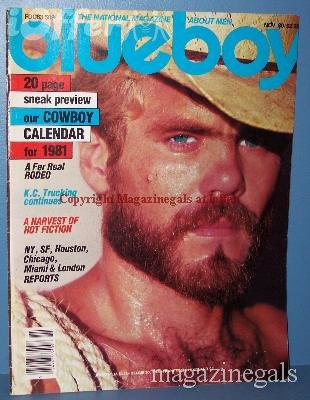
So at what point do you move from distributing to setting up a physical shop?
After a few years, Book Circus couldn’t pay us their bills. We couldn’t understand it. Then we talked to somebody who happened to live on our street who was their manager and he said the guy was being evicted for a pretty well-known drug problem. I think he’s since passed away. We ended up going to the landlord and renting this store, and this guy who was the manager for Book Circus, we hired him to be our manager because he knew about all the different genres of magazines and how to sell them to the customers. We changed the name to Circus of Books because the old owner owed a lot of people money and we didn’t buy anything from him. We opened up with the same business in the same location under a different name.
So if people saw the old name they wouldn’t come?
No. The old name was fine. Customers didn’t know. Vendors knew they were owed money and that he didn’t treat them fairly. At that time, if you came along and wanted to be an adult store, you couldn’t get access to the merchandise. it came through really specific streams. It was very lucrative. You charge what you charge. You pay what you pay. The big distributors set us up on credit so we filled that store. They knew what it could sell and at that time I must have gotten fifty, sixty, seventy thousand dollars worth of merchandise in the store on terms, which you don’t do anymore, but they knew the store could sell it. We opened for business without borrowing a penny from the bank. We’ve been doing this ever since. We bought this Silverlake building because Larry Flynt bought 150 different magazines for us to sell in addition to Hustler. High Times, Leg Show and Hustler Humor. They all sold. He also had New York Review of Books and The Nation, which didn’t sell.
People weren’t coming in for the Nation.
Not anywhere. You subscribe to The Nation. But it’s one of the magazines in his stable of stuff and we just took it. In the magazine business, you take whatever they sell you. Everything is returnable, because when the old Hustler is off the stands, you get to send it all back and you get the new Hustler. You don’t have any inventory that costs you money. You get a hundred, you sell thirty, you return seventy and you pay for those thirty and then you get the next hundred. The magazine business at the time was very wasteful. They tried to give you twice as much as you could sell.
Why?
Magazines are sold like on shelves in a pocket, and if one magazine gets in front of the other magazine you’ll never see it. So the idea is to keep the pocket full. It costs next to nothing to run the second or third hundred thousand of the magazine. The big cost is in the first part of the printing.
So they’d be printing way more than they could ever sell because of how displays were. That’s so interesting.
Yeah. Every once or while you’d get a Vanessa Williams or someone who posed and you’d actually sell out all of those magazines. That must have been a huge payday for the publisher. It was good for us to. At the same time, in addition to Blueboy, there was Honcho, Mandate, Men, a whole rack of gay magazines and the gay magazines were never as mainstream as the straight magazines. So Circus of Books was one of the few places where gay people came to buy their magazines. As a distributor in Los Angeles, we knew that the bulk of it was sold in that store.
Was that mainly because it was in WeHo? Or could it have thrived elsewhere in the city given how many gay people there were here?
You know, it’s hard to know. It was a very niche business and it was in West Hollywood for a reason. West Hollywood became a city when we owned it, and the mayor of WeHo, Steve Schulte, was on the cover of a Colt Magazine and came into the store. We were selling poppers, and those have a checkered history, but West Hollywood made it a point that those things were legal there. The powers that be in West Hollywood watched over us. After we opened the Silverlake store, we were told that there were certain things we shouldn’t sell here.
Like what?
Something called fisting, which I still don’t quite know what it is. We were told only to sell those in West Hollywood. We were told what was what. I always had people who knew what was what.
At what point do you begin carrying hardcore VHS porn?
Okay, so here we are, this little couple, running this store. We don’t know what we’re doing but we’re paying our bills and employing a lot of gay people who get their paychecks every week and like us. This adult VHS producer comes to us and says, you know, there’s another thing you should do. His name was was John Summers – Vaughn Kincey was his real name. He invites us to a penthouse that he probably borrowed and has a chef there cooking for us, and tells us that we should go into the business of selling hardcore gay VHS because the distributors who are in it are not being fair to the producers. He would like somebody who would sell his movies for him. So we said, “I guess we can do that.” What do we know? We knew nothing. We don’t exactly know what we’re doing, but I think I understand how to run a little business. So he brought us this movie Briefs, which was his movies, and then he brought us Jeff Stryker, and then he brought us Matt Sterling. He was real perfectionist. He brought us a movie already finished. Our first when we opened was Jeff Stryker’s Stryker Force. We hired a salesman, and we made a deal with him. He made way more money than we did, because he got a percentage on it. We were selling all this stuff, all over the country. We were a big distributor, with our salesman. Nobody else was making that stuff. Then somebody came who wanted to sell straight VHS and we gave him a little office and we had two salesman now and a receptionist, and this receptionist was never supposed to ship anything out unless it was in our database. He took a call from somebody and shipped three straight movies to Harrisburg, PA and we were indicted!
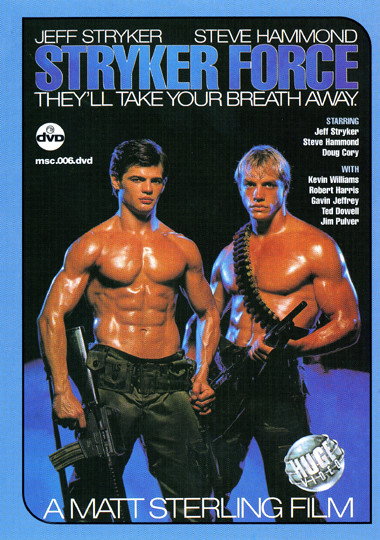 And it was a sting?
And it was a sting?
It was a sting! In Harrisburg, PA. Here we were in West Hollywood, where the prevailing community could care less. But there, some prosecutor wanted to make a name for themselves.
Was this Reagan politics?
It was the end of the first Bush administration. Thornburgh was the attorney general. Then Clinton was coming in and they wanted to clear up their dockets. So after hundreds of thousands of dollars in legal bills, there was a penalty of $25,000 dollars against Video 10 – our company – and we went on something called pre-trial diversion, where Barry checked in once a month, at a courthouse downtown. But when we were indicted, we said to the first amendment attorney, who was really good, we said, “We’ll go out of business. We don’t need to do this. We have skills, we can do other things.” He said, “If you go out of business, you’ll be in way more trouble than if you just stay and fight them and negotiate.” It turns out that just like the drug business, the government doesn’t want to put you out of business because then they don’t have jobs – fighting obscenity and drugs.
What did it feel like thinking you might be going to prison?
You can’t know what it’s like to be up against the government. When I read about people being indicted for almost anything, and sometimes they didn’t do it, and the government is just really powerful and they have their procedures and they don’t move quickly. We got the best lawyer. John Weston. After the fact he just said we were very lucky. Even now, the government could still come after us, so we have to keep all these records from these movies where we were the custodian of records, just in case. Every once in a while Weston would call and say, there’s a case here that I need you to pay for. The guy’s in trouble and he doesn’t have any money and you need to contribute because it’s important. The first amendment rights are fought on the fringes of the most unappealing material. It’s not fought over Gone with the Wind. It’s a really difficult area to be in.
I imagine the internet must have started cutting into your business early on. Did you make a conscious choice against becoming an online retailer?
When the internet came along, we said, well, I guess maybe we should get into it. But how do we get on the internet having a federal prosecution hanging over our heads? We went to the lawyer who had been so wonderful, he said, “My advice to you is not to do anything on the internet. Things are getting difficult. These companies are suing each other.” Indeed that’s what happened. “You gave me a movie and you didn’t pay.” Stuff like that. So we have a website, and in the beginning if anybody wanted anything, we only sold books on the website. If anyone wanted it, we had to look at it. What’s in it and could anybody look at it? It was excruciating to sell anything on the internet. We missed out on that whole piece of business.
Let’s talk about the effects having a porn store had on your personal life. Besides the threat of prison, what don’t you like most about the business?
I think the thing I hate the most about it, is that if I go somewhere and say “I own a bookstore.” “What kind of a bookstore?” “Well, it’s called Circus of Books.” “Oh where is it, I’ve never heard of it, I have to go.” “Well it’s not the kind of bookstore that you’d think about?” What kind of bookstore is it?” “Well it has adult material.” “Adult material, I have no problem with that.” You never meet somebody who’s a teacher or a journalist or doctor or something where people say “I have no problem with that.” You’re judged the minute you say it. And they always do have a problem with it, but they don’t say it. They get all excited about it.
Nobody says “Cool!”
At least not to my face. I was also afraid if the parents of Rachel and Micah’s friends knew what we did, they wouldn’t let them play with their kids.
What part of the business do you like the most?
We always had good employees who liked the work and stayed with us a long time. We have a guy who’s been with us for over thirty years. Then we also had a lot of writers and actors, people who needed rehearsals, musicians. We’ve had good employees. I think we’ve been lucky in that way. They’ve liked the material and understood it. They’re able to do whatever it needs to stock the store. The customers are really nice, and some of them are really prominent. Until he discovered the internet, Elton John would come in to West Hollywood. He would come in a lot. A lot of famous people came in, because there was no place else to go.
They came in personally?
Yeah. Really cultured people, and then would bring up a stack — Vanity Fair, a new novel, three magazines, a VHS tape, other eclectic material that they enjoyed. It was a busy store. It was written up in the Damron Guide and Spartacus as a place to meet people and there was an alley behind the store that they said was a big cruising place. We never really got involved in any of that, but we kept a business that paid its bills and paid its employees and was well stocked with this kind of merchandise.
Were you moved to explain sex, birds and the bees to your kids earlier than need be?
I don’t think so. I think if anything we were probably more prudish about it. They would say, “We already know that. We learned that.” I think it existed apart from the way I saw our family. There were some things that came up. Like, we’re Jewish, one time the rabbi said, I don’t think somebody who owns a store like this should be a part of the congregation. I said why don’t you come to the store and have a look? He said OK. He showed up and I said “Here’s our magazines and here’s our books.” He said “Where’s the adult stuff?” I said “Back there.” He said “Can I go in? I said “Sure, you can go in by yourself, I’m not going back there with you.” And he left. We stayed a part of the congregation. It was pretty unpleasant. But there wasn’t too much of that. Mostly when people found out they went “whatever.”
Kooky California.
Yeah.
What about within your family?
I think there were people in the family who didn’t like it. but they were free not to come. It’s really a free country. I didn’t particularly want to defend it to anybody. Which I didn’t. The family is still close. There were some unpleasant remarks from time to time, but they were just their opinions. I don’t know what people expected of me. I have an ability to just look at prices on things. I don’t even know what you’re buying. I just can do that. I don’t know why Hustler’s still publishing. it’s basically the same girl every issue.
Some gay mags are the same.
But some people collect every issue. There are people who have every single copy of Honcho, Mandate and Blueboy. All the Falcons and everything. They’re getting old and they’re retiring to Palm Springs, or back to Idaho or Minneapolis, and they don’t want to move all this stuff, so they’re selling it back to us and we have this big collection of vintage magazines. We’re reselling many of the same magazines we sold originally to people who either want to fill in their collection or were in the magazines at the time. These guys will come in and say “That’s me!” And there’s absolutely no resemblance, but they’re just happy to have it. We buy back all the gay magazines. That’s the one thing we have on the internet, is we buy gay adult material and we get calls from people who want to have an estate sale but they just discovered Uncle Henry had all this stuff. We take thousands of pieces and I’ve been in homes since I started doing this, the place is falling down but his collection of hardcore gay magazines is in pristine condition. Filing cabinets and if the guy selling it to me himself, he wants to carry them out to the car in the order of date. I mean, he’s so protective, meanwhile his dishes are gross and the place is dirty and he’s not dressed well. We started doing that and that’s a big business. But it’s just getting to be the end of all of it. Every month I look to see, should we go another month. But because we have good employees and people who probably wont be able to get the jobs that we’re providing right now, I say, okay, we’ll go another month.
When did you start realizing that the writing was on the wall? That the industry was changing that online was stealing things away from you?
I wouldn’t call it stealing. Things just changed. I go back a long time. It was the book business that changed first. Barnes and Noble and Borders and those big chains came along. We were always a regular bookstore too. Then Amazon came along. That happened ahead of the adult stuff. The adult stuff didn’t go first at least for us, because we weren’t straight. We had so much gay stuff which wasn’t quite as big online. I don’t know. I’d have to look, but it’s at least a good seven years that we’ve watched the sales go down every year by some amount. And that’s okay. The good news is that it’s so mainstream – look at Fifty Shades of Grey – that it doesn’t need to be a niche anymore. It’ll always exist in one form or another. It’s a very big interest to people.
Over the years you must have seen a lot of employees and customers fall prey to AIDS.
That was a terrible time. We are pretty strict with our labor laws. We never paid cash, but during the 80’s we had this young guy who worked here, and he was just wonderful. When he was diagnosed with AIDS, they said, you can’t work. You have to stay home. He couldn’t do anything, and he was smart and he knew our business. He liked the material. I said, when you feel like it, you can work here, as long as you want. I’ll pay you in cash, and initially he came in a lot. When he couldn’t come in, he didn’t. But on any day that he felt well enough, he could come in here and get paid his wages, cash, because he couldn’t work otherwise. that was a terrible time. We had some other employees who died. One guy went home from work on Friday and died on Monday. We didn’t even know he was sick. We had tenants, because we ended up buying the West Hollywood building. We had tenants who were sick. We had parents who called us who weren’t in touch with their kids, and wanted to talk to me after they died about what they were like and had gone through. That was terrible. Until the AIDS activists really stood up and made a big change. We did what we could, but the one thing that I did was just let people who were able and willing to work, work. But we were not the activists.
Let’s say the store closes in a year or two or more. What do you guys think you’ll do? Will you retire?
Oh yeah. We’re old. It’s enough already. We won’t do this anymore. It’s been kind of interesting shepherding it through it’s final phase a little bit. I think its all good.
No regrets?
Oh I think I might have liked to be a journalist longer or something. This isn’t a career that we would have chosen or something, but I think it served it’s purpose for a lot of people. We had many employees who came out here. They were closeted. For many people this was their first opportunity to connect with other gay people. I think the store is known all over the country for being a safe place. But I think you’ll have to find something else to write about, pretty soon.
___________________________
Adam Baran is a filmmaker, blogger, former online editor of Butt Magazine and co-curator of Queer/Art/Film. His short film JACKPOT, about a porn-hunting gay teen, won Best Short Film at the Miami Gay and Lesbian Film Festival, and was recently featured on The Huffington Post, Queerty, and Towleroad, among others. He is a features programmer at Outfest Los Angeles LGBT Film Festival and NewFest in New York. In his spare time, he complains about things to his friends. “Fisting for Compliments”, his weekly musings about the intersection of sex, art, porn, and history, will appear every Monday on TheSword. You can contact him at Adam@TheSword.com and follow him on Twitter at @ABaran999. Check out his previous columns in the Fisting For Compliments Archive.

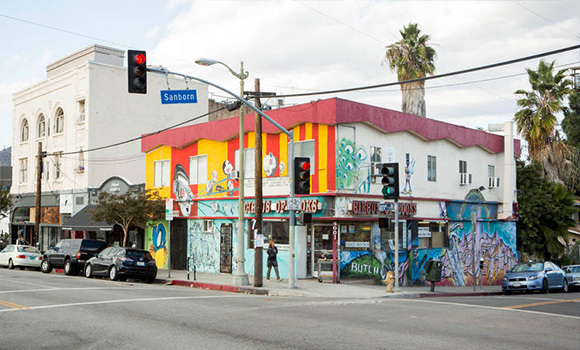





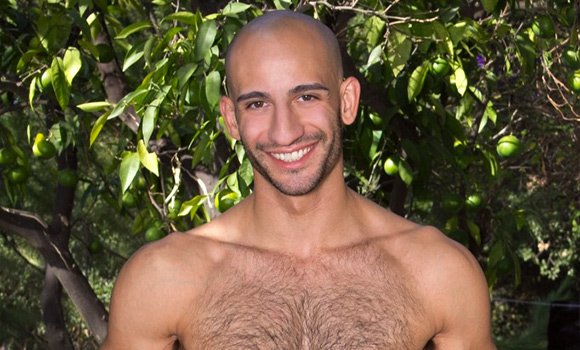
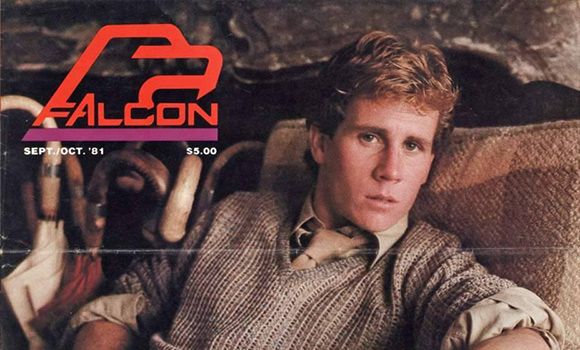
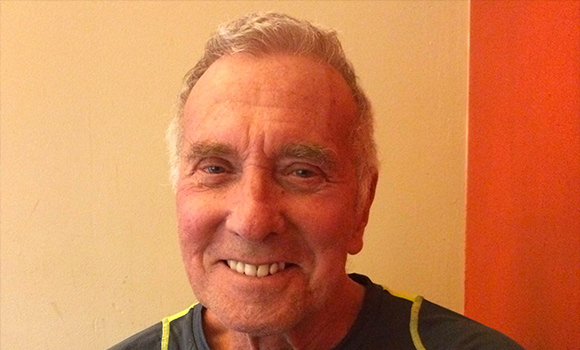
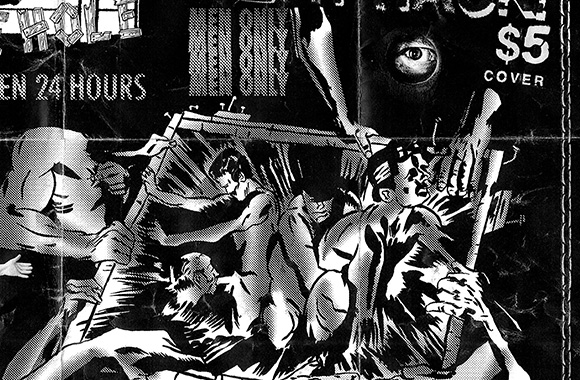


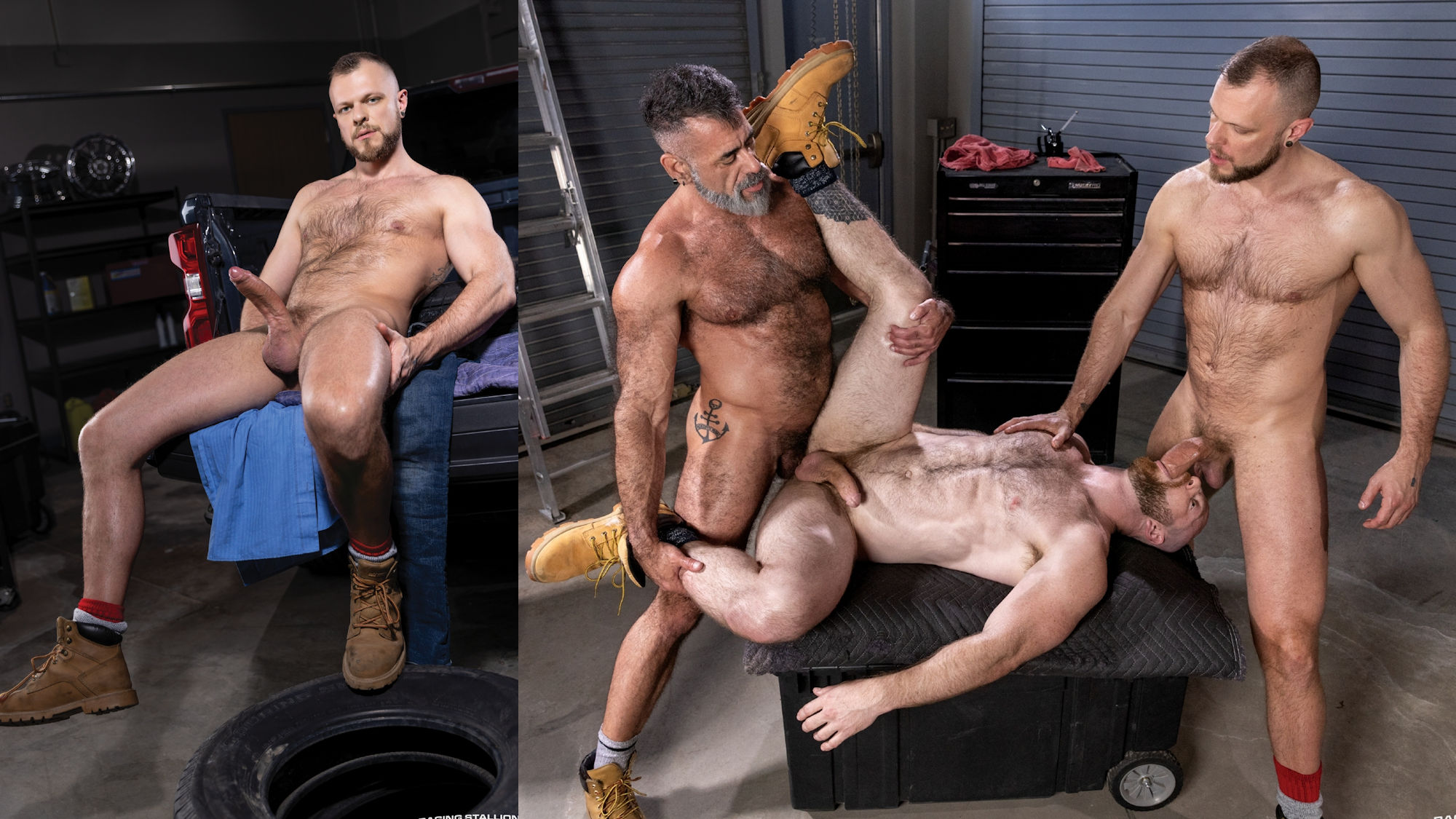
Definitely a fan of the long form writing and the “off the beaten path” interview subjects you seem to find. Gay Adult material is not just jack off material to some. It was a gateway into who they were since it could not be expressed in other ways during a different time. I can understand why a lot of older men are very attached to their tangible adult material. I am lucky (or unlucky enough depending on your view)to be in that middle ground where I came of sexual age when the materials were still tangible and popular but the internet was just starting to develop speeds fast enough for streaming video and not just still shots.
Time does move on and so we must move on with it but it seems like they were able to carve out a life for themselves despite falling into this. Interesting how sometimes you look back on your choices and experiences and wonder what got you there and all you can really say is, “life happened.”
LONG LIVE JEFF STRKER, THE KING!
lol the guy who faked most of his sex? fuck no.
Loving this long-form reporting and I wanted to thank you for doing it. There are so many great stories to tell and no one else doing it. I love Mondays now so I can see what the next article will be. You need to collect them into a kindle book at some point. The state of gay men and the sex industry in 2015 has not been done better.
That will be sad time for them to closed that store. I also missed these video stores here that were gone after the internet prevails some few years ago having said that I would never knew gay sex truly exists if it wasnt for the internet.
Why don’t they become more like the Pleasure Chest? That sex shop also in West Hollywood provides sex positive classes ranging from all kinds of topics. The Pleasure Chest also has a great online store and utilizes the web more as a tool than an enemy. Circus of Books decor could use some updating and the staff could be more helpful.
They say in the article… “We’re old. It’s enough already.”